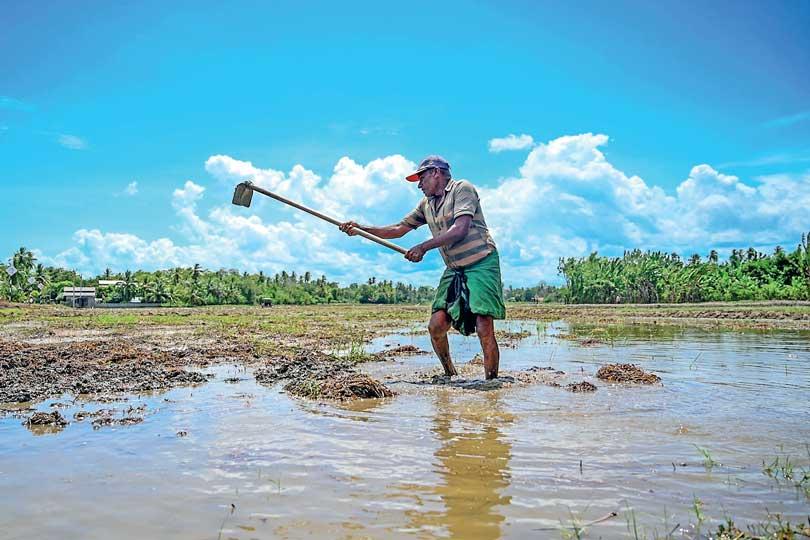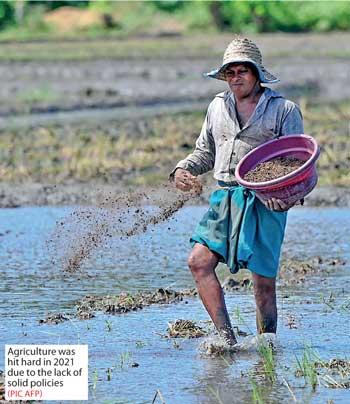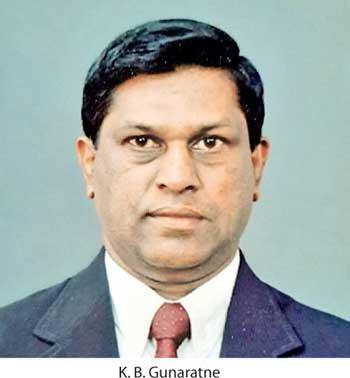13 Sep 2022 - {{hitsCtrl.values.hits}}
 Critics point out that if Sri Lanka could produce rice in the country the 15000 million rupees spent on importing rice could be saved
Critics point out that if Sri Lanka could produce rice in the country the 15000 million rupees spent on importing rice could be saved
(PIC AFP)
 According to the latest World Bank assessment Sri Lanka ranks fifth among countries with the highest food price inflation. UNESCO recently announced that Sri Lanka has the sixth-highest and second highest rate of malnutrition among children in the world and in Asia respectively. The United States Congress said that an estimated 60% of Sri Lankans skip one out of three meals. 6.3 million people have experienced food insecurity while 6.7 million are cutting back on meals and eating less.
According to the latest World Bank assessment Sri Lanka ranks fifth among countries with the highest food price inflation. UNESCO recently announced that Sri Lanka has the sixth-highest and second highest rate of malnutrition among children in the world and in Asia respectively. The United States Congress said that an estimated 60% of Sri Lankans skip one out of three meals. 6.3 million people have experienced food insecurity while 6.7 million are cutting back on meals and eating less.
The National Consumer Price Index indicated that food inflation in May, 2022 had increased by 75.8%. The World Food Programme monitoring vouchers given to pregnant women in Sri Lanka indicated that 84% had lost part of their income due to the economic crisis. Nine out of ten families receive an income less than 50000 rupees. Considering the issues highlighted by these beneficiaries 93% emphasised the food price hike as their major problem.
 The plight of Sri Lanka where agriculture is a prominent sector is a concern. People are forced to take to the streets instead of engaging in farming. The Government, instead of looking for answers to their grievances, arrested protesters under the Prevention of Terrorism Act. Arresting people, who fought over food when officials and politicians who plundered public funds are roaming free, is highly unacceptable, states former Director of Agriculture K. B. Gunaratne. Defence Secretary Kamal Gunaratna spoke about the humiliation caused to the country when the international media showed protesters bathing at the swimming pool at the President’s House. “If that is the case we should die of shame for being ranked the second and fifth in malnutrition and food inflation in the world,” K.B. Gunaratne added.
The plight of Sri Lanka where agriculture is a prominent sector is a concern. People are forced to take to the streets instead of engaging in farming. The Government, instead of looking for answers to their grievances, arrested protesters under the Prevention of Terrorism Act. Arresting people, who fought over food when officials and politicians who plundered public funds are roaming free, is highly unacceptable, states former Director of Agriculture K. B. Gunaratne. Defence Secretary Kamal Gunaratna spoke about the humiliation caused to the country when the international media showed protesters bathing at the swimming pool at the President’s House. “If that is the case we should die of shame for being ranked the second and fifth in malnutrition and food inflation in the world,” K.B. Gunaratne added.
The Chinese fertilizer vessel was paid 500 million USD without Sri Lanka receiving any fertilizer. The Government is yet to obtain compensation from the X-Press Pearl ship. “The Sri Lankan rupee kept depreciating. The scams associated with the Central Bank Bonds, Sugar industry and the garlic industry took place. It is not due to the fault of the people that any of these incidents took place. These are just a few incidents which caused our foreign reserves to shrink. Some obtained commissions while some received bribes, but they took their toll on the people. Former and present politicians made people starve,” K.B. Gunaratne added.
The problems of the country have worsened. The fall of agriculture runs back to April 30, 2021 when the Government decided to ban the import of chemical fertilizer. Agricultural production was badly hit. The paddy production during the 2021/22 Maha season was reduced by 50%. The agriculture sector crashed in the absence of a proper plan. It was a blow to the economy as well. The economic growth rate in 2021 was 3.6%. According to IMF predictions the rate is likely to fall to 2.6% by 2022.
 “The Sri Lankan rupee kept depreciating. The scams associated with the Central Bank Bonds, Sugar industry and the garlic industry took place. It is not due to the fault of the people that any of these incidents took place. These are just a few incidents which caused our foreign reserves to shrink”
“The Sri Lankan rupee kept depreciating. The scams associated with the Central Bank Bonds, Sugar industry and the garlic industry took place. It is not due to the fault of the people that any of these incidents took place. These are just a few incidents which caused our foreign reserves to shrink”
Sri Lanka is rated below other countries due to the economic crisis it is experiencing. The Government and the people are to blame for this, according to K.B Gunaratne. “The Government lacks a policy, a vision and a feeling for the country. The last time a review on agricultural was made was during J. R. Jayewardene’s tenure. If not for the Mahaweli project- which began back then- we would be starving by now. We would not be having electricity. The basic requirement for any government, that’s responsible for people, is to create food security,” explained K.B. Gunaratne.
Today people have the habit of expecting everything free. Concessions cannot save a country that’s falling. “We have experienced the negative impact of rice and fertilizer concessions. We are yet to obtain the harvest of the previous seasons; when fertilizer was issued free. The economy has taken a fall to a place where we are struggling to find 8000 million USD to import fertilizer,” K.B. Gunaratne added.
Importance of regulating prices
The price of an egg has increased from 18 rupees to 50. A maximum retail price was introduced, but traders were unwilling to comply with regulations. “A kilo of chicken, which was at 500-600 rupees, is now 1500 rupees. The price of manioc has increased from 80 rupees to 200 a kilo. A kilo of rice has increased from 70 rupees to 240. A litre of kerosene has increased from 87 rupees to 340 and a kilo of wheat flour costs 360 rupees. These are prices of everyday goods. The Government has no intention to regulate these prices,” K.B. Gunaratne said. Traders sell goods at various prices at will. If the Government regulates prices, these items can be sold at half the price. Rice- which is brought for 90 rupees- can be sold at 120 rupees a kilo. The country cannot escape the current situation without strictly imposing laws and policies. The Government should formulate laws and policies for the sake of the people,” Gunaratna emphasised.
Agriculture was hit hard in 2021 due to the lack of such policies. Paddy was cultivated in 770240 hectares during the 2020/2021 Maha Season and the harvest was 3061394 MT. 50179 hectares was cultivated during the Yala Season producing a harvest of 208848 MT. “During this period farmers had sufficient chemical fertilizer and the harvest was satisfactory. In 2021/2022 cultivated lands did not receive fertilizer and rice had to be imported. In 2021 147011347 kilos of rice was imported at the cost of 14,680,281,196.00 rupees. The Government spent an estimated 15000 million rupees to import rice in 2021 and this is not at all a favourable situation. Importing rice cultivated with chemical fertilizer after destroying the local agriculture proves the short-sightedness of the previous Government,” K.B. Gunaratne added.
If we could produce rice in the country the 15000 million rupees spent on importing rice could be saved. But the Government did not have a proper plan giving way to this tragic situation in 2022. The Government at least did not have a plan to cultivate during the 2022 Yala season. Farmers refused to cultivate due to the fuel issue and the lack of fertilizer, seeds and pesticides. Therefore the Yala harvest was reduced by 40%.
At present farmers are not on the priority list in terms of obtaining fuel. Fuel is not issued to harvest paddy which further worsens this issue. Seeing this danger Agricultural Minister Mahinda Amaraweera said he would sit in front of the Ceypetco in protest. The previous Government did not have a vision for agriculture and it is uncertain if the present Government is also following in its footsteps of the past regime,” opined K.B. Gunaratne.
50139 MT of dried chilies were imported in 2021 at the cost of 18,403,181,000.00 rupees. Hence the dried chilli requirement of the country was fulfilled to a large extent. From 2007-2013 under the ‘Api Wawamu – Rata Nagamu’ project agricultural production of the country saw a vast increase which helped limit imports. The country was self-sufficient in rice and this continued for a few years,” pointed out Gunaratne.
Onion cultivation was also given priority. Nonetheless 257421 MT of onions were imported in 2021 at the cost of 19,723,307,000 rupees. Cultivation inland was abandoned and onions were imported at a higher cost. Being so neglectful the authorities turned to take debts from everywhere lamenting on a dollar shortage. This calls for action and is a sign of the downfall of agriculture. Shallot cultivation was destroyed as well. In 2021 12799 MT of shallots were imported at the cost of 2,288,162,000.00 rupees, 1863 MT of seed potatoes at 396,004,000.00 rupees, 116716 MT of potatoes at 7,384,896,000.00 rupees , 6792 MT of maze at 502,010,000.00 rupees, 54 MT of cowpie at 9,102,000.00 rupees and 2140 MT of soya spending 318,084,000.00 rupees.
Food items bought by wasting dollars can be cultivated in the country. “It is sad to see these unplanned imports being brought down at a huge cost merely for the sake of obtaining commissions. With a proper policy in place these imports can be completely halted. These crops can be cultivated. Some of these crops were cultivated in 2021. Chillies were cultivated in 11970 hectares yielding a harvest of 67149 MT whereas shallots cultivated in 3522 hectares yielded 42903 MT. 62604 MT of onions were obtained by cultivating 33686 hectares and 75911 MT of potatoes from 4623 hectares. These productions are not sufficient for local requirements. However importing the said amounts was not required,” Gunaratna added. “If farmers were given seeds pesticides and fertilizer from the money spent on imports they would produce crops to suffice the local requirements. Instead, the authorities took steps to destroying the local agricultural sector,” he added.
Today there is no one to take the responsibility for destroying the local agriculture sector. According to K.B. Gunaratne the introduction of organic fertilizer to replace chemical fertilizer took its toll on country’s agricultural sector. “The cultivation of tea, rubber, vegetables, fruits, small export crops and flowers was also destroyed. The floating exchange rate affected the agricultural sector immensely. As a result the price of agricultural ingredients increased and farmers had to bear the burden. The chemical fertilizer ban was lifted and private companies were allowed to import fertilizer. Several companies began to import chemical fertilizer in small amounts. But that costs 20,000 rupees per 50 kg bag of fertilizer. In some places it costs 30,000 – 42,000 rupees. Farmers then demand higher prices for their produce. It is not their fault, but consumers become helpless.” he added.
To avoid repeating this mistake the Government should have a plan to cultivate during the Maha Season. But there is no sign of such things happening, according to Gunaratna.
To see the possibility of finding solutions to the food shortage following this Maha season this newspaper contacted Agricultural Minster Mahinda Amaraweera, but he was not reachable. However at a recent press conference Amaraweera had said that he would go and sit in front of the CPC until fuel is issued to harvest paddy during the Yala Season.
22 Dec 2024 7 hours ago
22 Dec 2024 7 hours ago
22 Dec 2024 9 hours ago
22 Dec 2024 22 Dec 2024
22 Dec 2024 22 Dec 2024